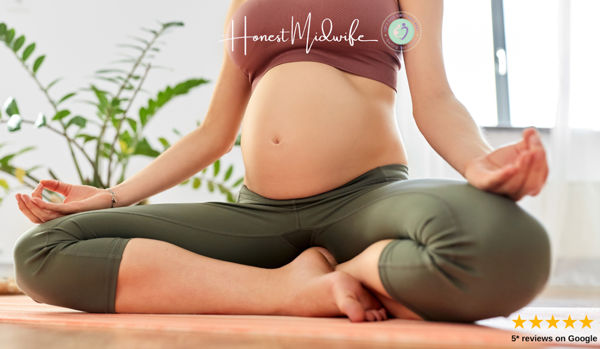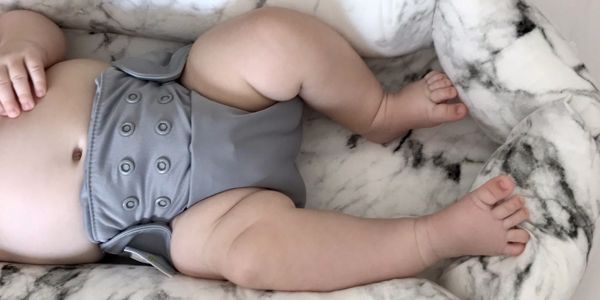As you prepare for the arrival of your little bundle of joy, one of the essential decisions you'll make is where your newborn baby will sleep. With so many products and of options available, from Moses baskets to cribs and cots, navigating through the choices can be overwhelming. Here, we’ll give a bit more information on each sleep space to help you make an informed decision tailored to your baby’s needs.
What is a Moses Basket?
Moses baskets are sleeping spaces designed for newborns in the first few months of life. Often crafted from natural materials such as wicker or palm, these portable sleep environments provide a cosy and snug place for your little one to rest their tiny head. The lightweight design allows for easy transport, making it a convenient choice for parents seeking flexibility in their baby's sleeping arrangements in the early months.
Pros of a Moses Basket
- Portability: Easily move your sleeping baby from room to room without disturbing their slumber. Carry handles make this easier.
- Cosiness: The compact size of a Moses basket provides a snug and comforting environment for newborns, helping them feel secure.
- Affordability: Compared to cribs and cots, Moses baskets are often more budget-friendly, making them an attractive option for cost-conscious parents.
Cons of a Moses Basket
- Limited Lifespan: Due to their small size, Moses baskets are suitable for newborns and young infants, but they are quickly outgrown as your baby grows.
- Minimal Support: The lack of firm mattress support in some may not be the best.
How Long Can My Baby Sleep in a Moses Basket?
Typically, babies can sleep in a Moses basket for the first few months of their lives, usually until they reach around 3-4 months old or until they start to outgrow the basket in terms of size or weight. It’s important to consider this when buying a Moses basket and considering how much to spend on one.
Read More: Your Guide to Choosing the Perfect Moses Basket
What is a Crib?
A bedside crib is an alternative option from birth if you don’t want to invest in a Moses basket. They’re a sturdier option, and offer a secure sleep space specifically designed for babies. They can usually be used until your little one is around six-months-old, unless they outgrow it earlier.
Pros of a Bedside Crib
- Safety: Cribs are designed with safety standards in mind, featuring sturdy construction and secure mattress support to reduce the risk of accidents.
- Longevity: Unlike Moses baskets, cribs can accommodate your baby as they grow, offering a more extended period of usability.
- Versatility: Many cribs come with adjustable mattress heights and convertible features, allowing them to adapt to your baby's needs and to best fit next to your bed.
- Peace of Mind: You can easily keep an eye on your little one as they sleep.
Cons of a Bedside Crib
- Space Requirements: Cribs typically take up more space compared to Moses baskets, making them less suitable for compact living environments.
- Initial Investment: While cribs offer long-term value, the initial cost may be higher than other sleep solutions such as Moses baskets.
Read More: Your Guide To Choosing Your Baby’s Sleeping Bag
What is a Co-Sleeper?
A co-sleeper, also known as a bedside sleeper or co-sleeping bassinet, is a sleep space designed to attach securely to the side of an adult bed, allowing your baby to sleep within arm's reach while still having their separate sleep space. They’ve grown a lot in popularity in recent years with mums who want to be close to their little one.
This arrangement supports a safer approach to co-sleeping, allowing for enhanced bonding and easier nighttime feedings, while minimising the risks associated with bed-sharing.
Pros of a Co-Sleeper
- Enhanced Bonding: Co-sleepers promote bonding between parent and baby by keeping them close throughout the night, fostering a strong sense of security and connection if this is what the parents are looking for through safe co-sleeping.
- Convenience: With a co-sleeper, you can attend to your baby's needs more quickly during nighttime feedings or comforting, reducing disruptions to your sleep and promoting a smoother bedtime routine.
- Safe Sleep Environment: Co-sleepers provide a separate sleep space for your baby within arm's reach, reducing the risk of accidental suffocation associated with bed-sharing while still allowing for close proximity and comfort.
Relax and prepare for labour from the comfort of home, suitable for all levels. Includes breathing techniques to assist in labour & postures to release tension.
Cons of a Co-Sleeper
- Limited Lifespan: Co-sleepers are typically designed for use during the newborn and early stages, meaning your baby may outgrow the sleep space relatively quickly compared to bigger cribs or cots.
- Space Constraints: While co-sleepers offer the convenience of keeping your baby close, they may require additional space alongside your bed, which may not be suitable for all bedroom layouts.
- Compatibility Issues: Not all adult beds are compatible with co-sleepers, and it's essential to ensure a secure attachment to prevent any risk of accidental detachment or instability during use.
Read More: 10 Newborn Next-To-Me-Cribs and Co-Sleepers for a Safe and Comfortable Sleep
When Should I Move My Baby Into a Cot?
None of these newborn sleep options will last throughout babyhood. Once your little one outgrows their Moses basket, crib, or co-sleeper, they’ll need to move into a cot. The ideal time to transition your baby from a Moses basket or crib to a cot depends on their individual development and comfort level. As a general guideline, most babies are ready to move into a cot between 6 to 12 months of age, or when they begin to outgrow their current sleep space in terms of size or mobility.
Choosing the right sleep space for your baby is a personal decision that depends on various factors, including space, budget, and your baby's individual needs. Whether you opt for a cosy Moses basket, a secure crib, or a handy co-sleeper, remember that each option offers its unique benefits, and that the most important thing is to provide a safe and comfortable sleeping environment for your precious little one.






